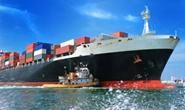Market Data

April 10, 2014
Seaborne Freight Rates Drop Dramatically
Written by Sandy Williams
Seaborne freight rates are in a valley trough right now according to the April 9 MID-SHIP Report. Freight prices dropped dramatically in all segments of the Baltic market as oversupply of ships caught up with diminished demand, exacerbated by extreme winter weather this year.
Other pressure to rates included China turning away shipments of US corn that were “grown with an unapproved genetically modified trait,” falling commodity prices and a statement by the World Trade Organization (WTO) that “global trade has failed to rebound as expected.”

In the US, thawing rivers are being watched closely for rising water levels that can disrupt barge traffic. The Illinois River is clear with all locks operating. The Upper Mississippi is still ice clogged above mile 648/Lock #9 in the area of Praire Du Chien. MID-SHIP reports the entire river should be navigable by the end of April. The Lower Mississippi is experiencing high water levels with the river cresting at New Madrid on Wednesday.
Supply chains are still feeling the impact of winter delays. Truck freight has seen a dramatic increase but truck availability is insufficient to meet demand.







